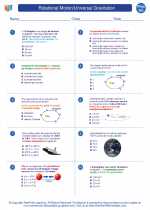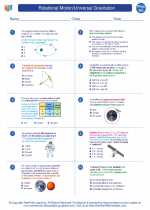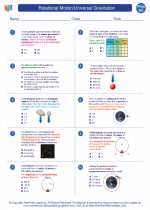Space Exploration
Space exploration is the investigation and discovery of outer space using space technology. It involves the exploration of celestial bodies such as planets, moons, and asteroids, as well as the study of phenomena such as black holes, supernovae, and cosmic radiation. Space exploration has led to numerous technological advancements and has expanded our understanding of the universe.
History of Space Exploration
The history of space exploration can be traced back to the early 20th century with the development of rocket technology. Major milestones in space exploration include the launch of the first artificial satellite, Sputnik 1, by the Soviet Union in 1957, and the historic Apollo 11 moon landing by the United States in 1969. Since then, space agencies and private companies around the world have continued to push the boundaries of space exploration.
Key Concepts in Space Exploration
- Spacecraft: Spacecraft are vehicles designed for travel or operation in outer space. They can be manned or unmanned and are used for various purposes such as satellite deployment, planetary exploration, and space station support.
- Orbital Mechanics: Orbital mechanics is the study of the motion of objects in space, including the calculation of trajectories and orbits around celestial bodies.
- Planetary Exploration: Planetary exploration involves the study of planets, moons, and other celestial bodies within our solar system and beyond. Robotic probes and rovers are commonly used for planetary exploration.
- Astronaut Training: Astronauts undergo rigorous training in preparation for space missions. Training includes physical fitness, spacecraft operation, survival skills, and scientific research.
- Space Telescopes: Space telescopes, such as the Hubble Space Telescope, provide astronomers with a clearer view of distant galaxies, stars, and other celestial objects by capturing images from outside Earth's atmosphere.
- Space Missions: Space missions are carefully planned expeditions that involve sending spacecraft and/or astronauts to specific destinations in space for scientific research and exploration.
Challenges and Future of Space Exploration
Space exploration comes with numerous challenges, including the harsh environment of space, radiation exposure, and the need for sustainable life support systems for long-duration missions. Despite these challenges, ongoing advancements in technology and international collaboration continue to drive the future of space exploration, with goals such as crewed missions to Mars, the development of space tourism, and the search for extraterrestrial life.
Study Guide for Space Exploration
If you are studying space exploration, here are some key topics to focus on:
- Understand the history of space exploration and key milestones.
- Learn about the different types of spacecraft and their purposes.
- Explore the concepts of orbital mechanics and how orbits are calculated.
- Study the techniques and technologies used in planetary exploration, including robotic probes and rovers.
- Examine the training and preparation required for astronauts participating in space missions.
- Explore the impact of space telescopes on our understanding of the universe.
- Consider the challenges and future prospects of space exploration, including potential missions to Mars and beyond.
By mastering these topics, you will gain a comprehensive understanding of space exploration and its significance in the scientific community.
.◂Physics Worksheets and Study Guides High School. Rotational Motion/Universal Gravitation

 Worksheet/Answer key
Worksheet/Answer key
 Worksheet/Answer key
Worksheet/Answer key
